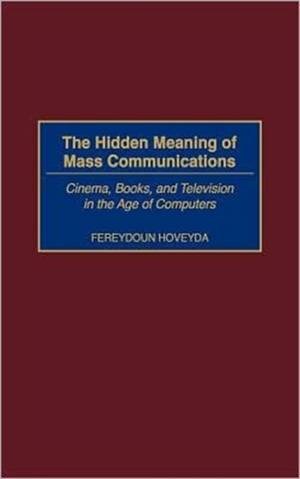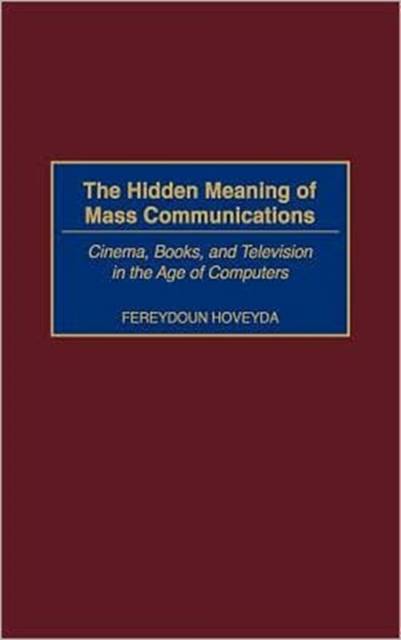
- Retrait gratuit dans votre magasin Club
- 7.000.000 titres dans notre catalogue
- Payer en toute sécurité
- Toujours un magasin près de chez vous
- Retrait gratuit dans votre magasin Club
- 7.000.000 titres dans notre catalogue
- Payer en toute sécurité
- Toujours un magasin près de chez vous
The Hidden Meaning of Mass Communications
Cinema, Books, and Television in the Age of Computers
Fereydoun HoveydaDescription
In 1917, the French poet Guillaume Apollinaire predicted the death of books in one or two centuries and their replacement by film and sound. In the early sixties, Marshall McLuhan proclaimed the end of the Gutenberg Galaxy. Neither of these predictions has yet happened. Nonetheless, the development of computer science and the spread of the Internet have already changed the landscape of the media and affected the fields of book publishing, journalism, cinema, and television. In his new book, Hoveyda, who was involved with cinema and literature for many years, scrutinizes the relationship between the different forms of media and art. Drawing on his varied experience as well as on his knowledge of the arts and media, he explains how cinema literally existed before literature or articulate language, and that all other forms of communication stem from this innate capability to think cinematically. Looking at the extraordinary technological developments in the fields of cinema, television, and communications, Hoveyda finds a hidden purpose behind them; a kind of common thread that illustrates and explains the quest of humans for communication.
As far back as one can go, Hoveyda finds that humans were always preoccupied with the question of how to communicate what was going on in their minds. They tried--and found--ways of transmitting to one another the impressions and ideas churning in their heads. Prehistoric cave drawings, hieroglyphs, literature, and canvas paintings were and are part of such attempts. This progression of inventions seems to pursue a linear path toward externalization of their people's thoughts and dreams. The pinnacle of this externalization will be reached when it becomes automatic and foregoes the use of heavy equipment. Bunuel once told the author and his friends that he dreamt of the day when he would sit in a darkened room and project on a wall the film he was concocting in his head. This is exactly the goal of the technological progress we witness. Hoveyda's survey also includes a description of the evolution of modern cinema as he witnessed it; some new and revolutionary remarks about film appreciation and filmmaking; discussion of television and how it differs from cinema; and observations on the impact of media on one another as well as the influence of the more recent technologies on narration styles. A provocative account that will be of interest to scholars, researchers, students, and anyone involved with the development of communications.Spécifications
Parties prenantes
- Auteur(s) :
- Editeur:
Contenu
- Nombre de pages :
- 192
- Langue:
- Anglais
Caractéristiques
- EAN:
- 9780275969967
- Date de parution :
- 30-07-00
- Format:
- Livre relié
- Format numérique:
- Genaaid
- Dimensions :
- 152 mm x 229 mm
- Poids :
- 453 g







